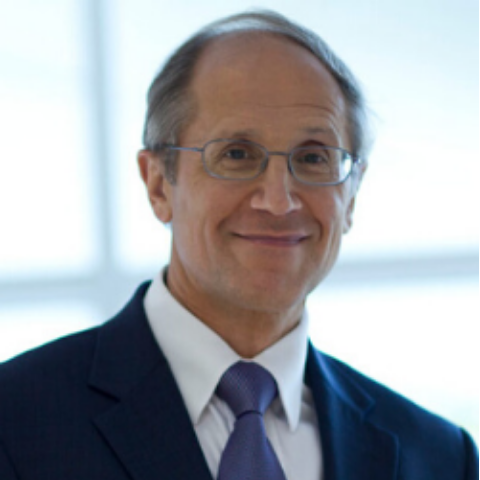216 first-year medical students attended our school’s White Coat Ceremony on Sunday, July 12, a rite of passage welcoming them into the community of healers. It was particularly special because it marked the first time in months that we gathered together in a large group, outdoors on a beautiful morning, wearing masks along with white coats, and sitting at safe social distances from each other—but together, none the less.
Becoming a doctor is not just a job or career—it is a life choice. The physician’s white coat is a powerful symbol of the profession’s contract with humankind, and the ceremony is a light-switch moment, launching students at the beginning of their medical education.
At the end of the ceremony, the students recited their Oath of Professionalism, pledging to reach a high bar that we instill in them to aspire to every day. Attention to the principles of medicine is always important, but for this millennium, it is fundamental. Our students will sort through expectations of their performance, of risk-taking, of their lifestyle to avoid COVID-19 and the next unknown pandemic. They will address interactions with their patients, fellow students, colleagues, teachers and their community, as they begin to understand how they are viewed as a member of our field.
Part of professionalism is asking these students to directly address their conscious and unconscious biases, to view every patient as needing their help regardless of their condition, background, race or ethnicity, age or sexual orientation. We ask that they willingly sit down and explain what they know to every patient, regardless of that person’s education or ability to understand. We ask that they appreciate their own strengths and weaknesses, and the need for utmost honesty—their ability to say “I don’t know,” to admit mistakes, and recognize lapses.
We ask that they speak out and “stop the line,” a manufacturing term for shutting down a conveyor belt when something goes wrong. In this case, it is a physician’s right, responsibility and obligation to stop wrongful behavior and attitudes when confronted with them—be it a transgression to them or a colleague, an error of judgment, a mistake in a decision or medical treatment, or a failure of compassion or characterization such as a racist comment or a demeaning perspective. We cannot abandon our focus on this in our own profession, and we can’t ignore those individuals who persist in such behavior, because it infects us all.
Patients cherish interactions with their physician, as each of our new students will experience. As a practicing oncologist, when I announced my stint as interim dean and changed my practice location from a community clinic to University Circle, there was an unbelievable response from my patients who rushed the scheduling system to make sure they could still see me. A 54-year-old patient with three children who was cured of her lymphoma 30 years ago drives up from South Carolina annually for an office visit. Others fly in from Arizona and Florida, and many frequently contact me for advice. One of my most satisfying activities is identifying and referring the best oncologist whose practice is nearby to a patient’s family member or friend.
Trust, empathy, fairness and equity—all elements of professionalism—create an environment for my patients to undergo experimental therapies, take risks, and sign consent forms for treatments never before given to another human being. Like mine, the patients of our newest students will become their life and embolden their experience.
As all physicians appreciate, medical students can be overwhelmed as they begin their journey to become a healer. Being a doctor is not a profession—it is your life. Welcome to medicine.
Stan
Stan Gerson, MD
Interim Dean, School of Medicine and Interim Senior Vice President for Medical Affairs
Director, Case Comprehensive Cancer Center
Director, National Center for Regenerative Medicine
Distinguished University Professor, CWRU
Asa & Patricia Shiverick – Jane B. Shiverick (Tripp) Professor Hematological Oncology
Professor of Medicine, Oncology, CWRU


